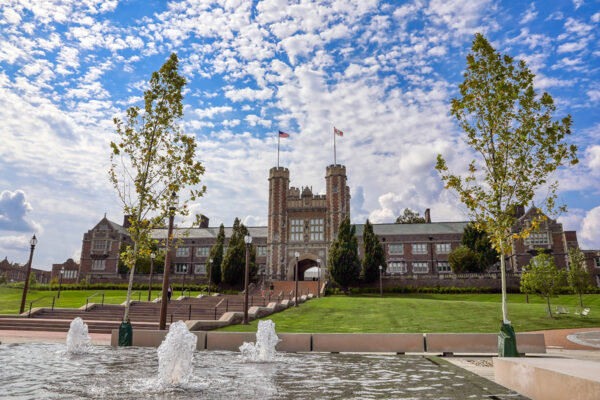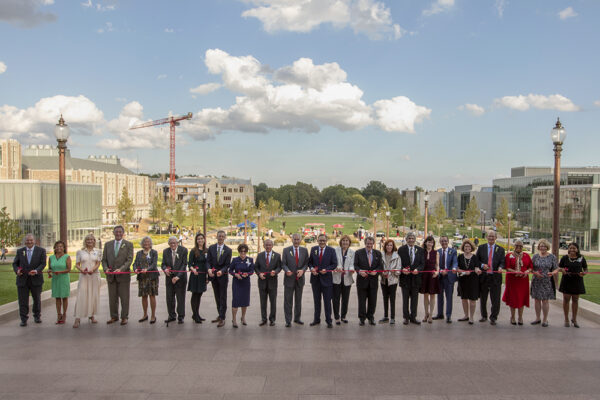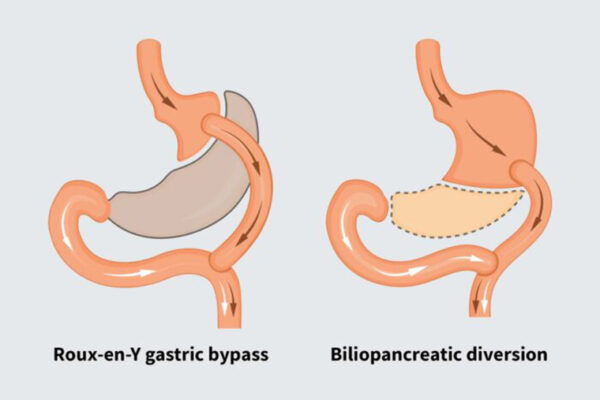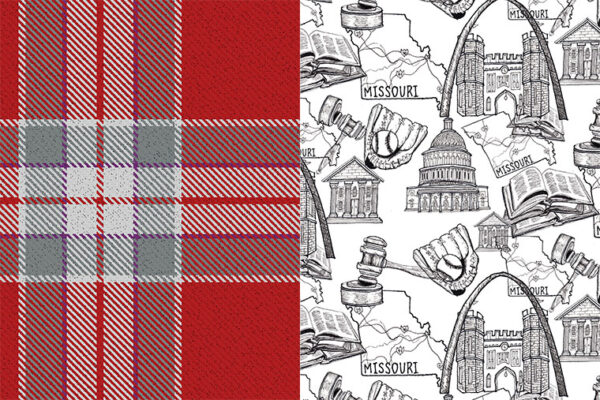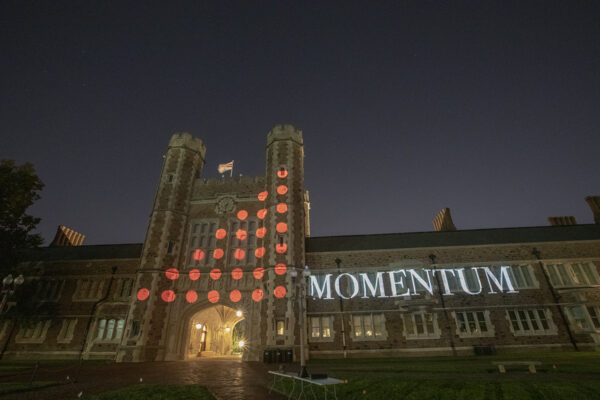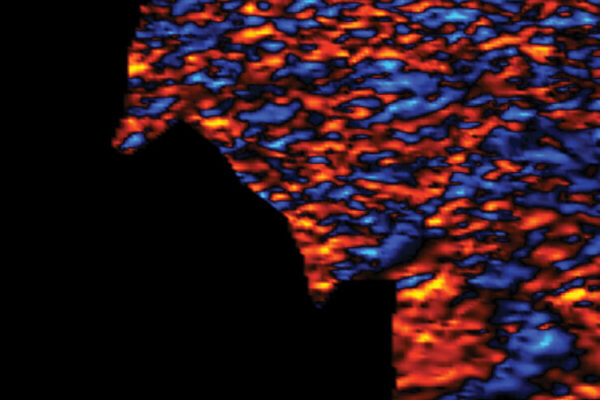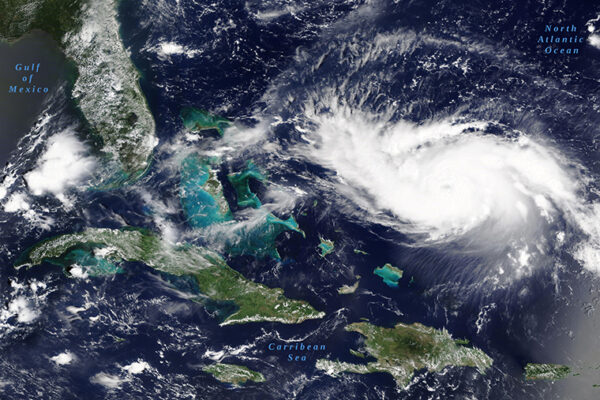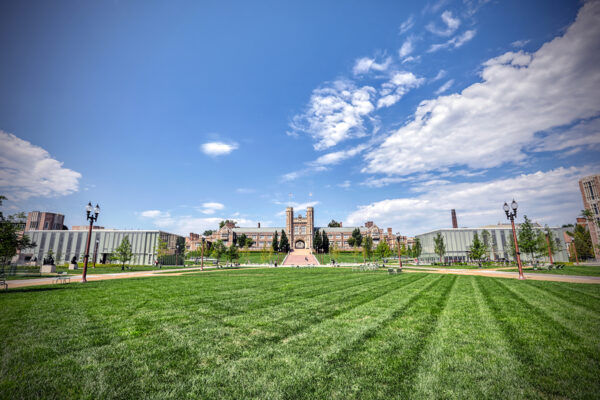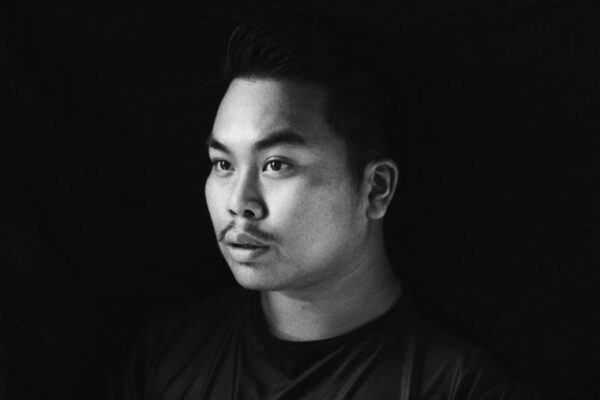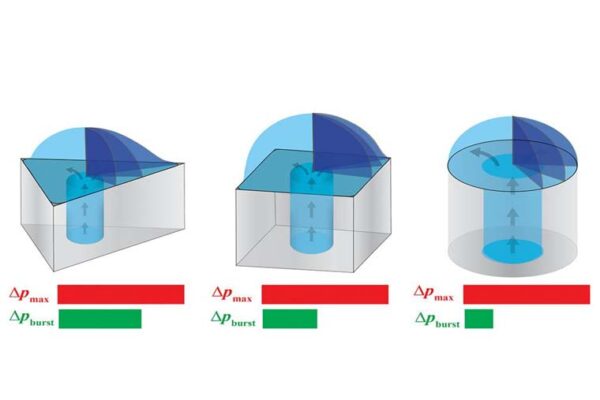Newly inaugurated Chancellor Andrew D. Martin makes ‘WashU Pledge’
Today, as he was inaugurated as Washington University in St. Louis’ 15th chancellor, Andrew D. Martin announced the WashU Pledge, a bold new financial aid program that will provide a free undergraduate education to incoming, full-time Missouri and southern Illinois students who are Pell Grant-eligible or from families with annual incomes of $75,000 or less.
East End Transformation dedicated
A sweeping campus planning, design and construction project has transformed the Danforth Campus two years after the start of construction. The largest capital project in the university’s recent history, the East End Transformation was officially dedicated Oct. 2.
Uncommon weight-loss surgery best for reducing diabetes risk
One of the most frequently performed weight-loss surgeries in the world — Roux-en-Y gastric bypass — is effective, but another procedure rarely performed in the U.S. appears to be more effective at eliminating type 2 diabetes in patients with obesity. A study from the School of Medicine explains why.
What’s with the tam?
A tam is the distinctive head covering typically worn in academic celebrations. Here’s a look at the specially designed custom tams created for the inauguration of Andrew D. Martin by Meredith Liu, a senior fashion major in the Sam Fox School of Design & Visual Arts
Building ‘Momentum’
Tomorrow’s inauguration of Andrew D. Martin as 15th chancellor of Washington University in St. Louis is a time-honored academic tradition, and will be a day of celebration and fanfare. Here’s everything you need to know.
The importance of collagen fibers in health
Engineers from the McKelvey School of Engineering at Washington University have shown that the length of collagen fibers has a role to play in the ability of normal cells to become invasive.
Brave new world
Faced with extreme weather events and unprecedented environmental change, animals and plants are scrambling to catch up — with mixed results. A new model developed by Carlos Botero, assistant professor of biology in Arts & Sciences, helps to predict the types of changes that could drive a given species to extinction.
Check out 10 must-see east end highlights
Sweeping views. An expansive park. And a killer turkey wrap. These are just a few highlights of the newly completed east end project, the university’s largest capital project in recent history. The newly completed east end encompasses 18 acres of the Danforth Campus, adds five new buildings, expands the university’s world-class Mildred Lane Kemper Art Museum, moves hundreds of parking spaces underground and creates a new park where students can meet, relax and celebrate. Here, we offer a list of must-see attractions.
Art, poetry and ‘Momentum’
Learn about how poet Paul Tran and more than a dozen artists, illustrators and designers are preparing for the inauguration of Andrew D. Martin as 15th chancellor of Washington University in St. Louis.
Shape affects performance of micropillars in heat transfer
A Washington University in St. Louis researcher has shown for the first time that the shape of a nanostructure has an effect on its ability to retain water. This has important ramifications for heat transfer, which is important when it comes to performance in small electronics.
View More Stories
